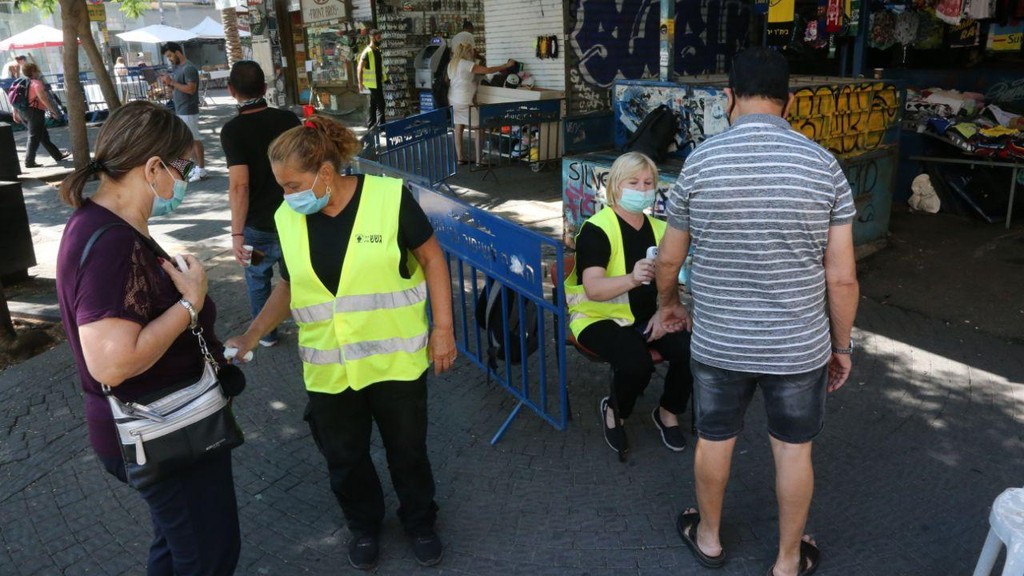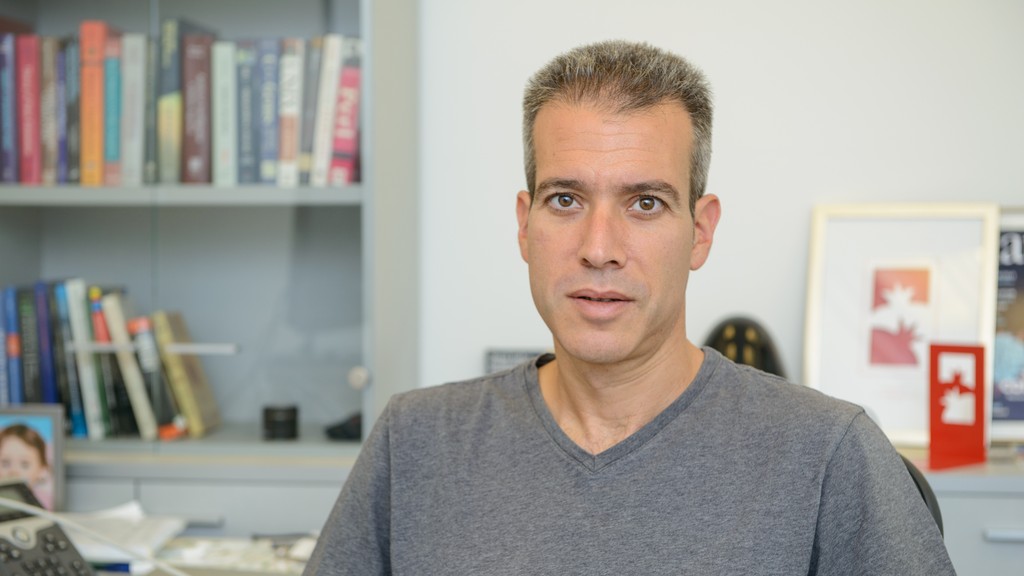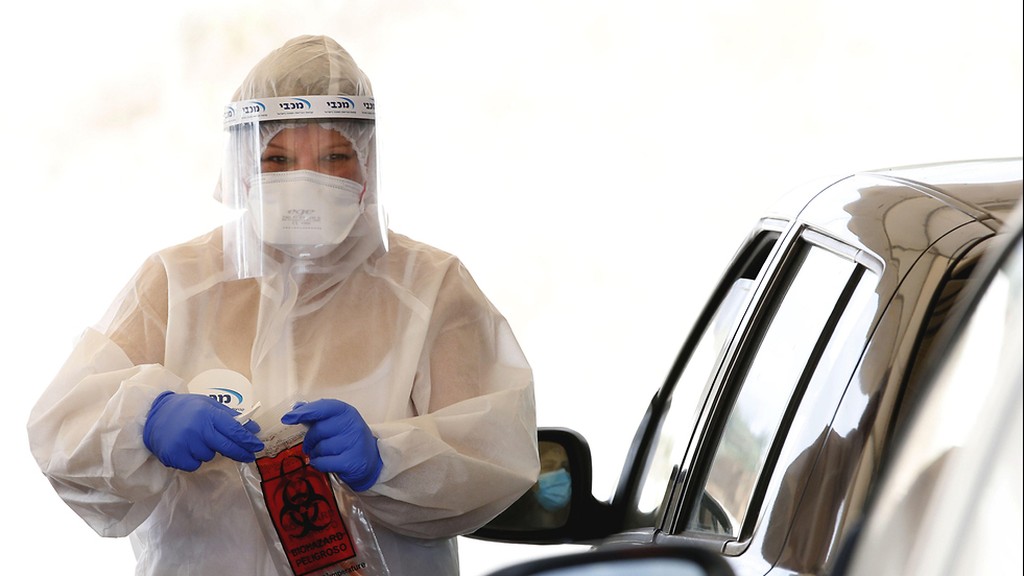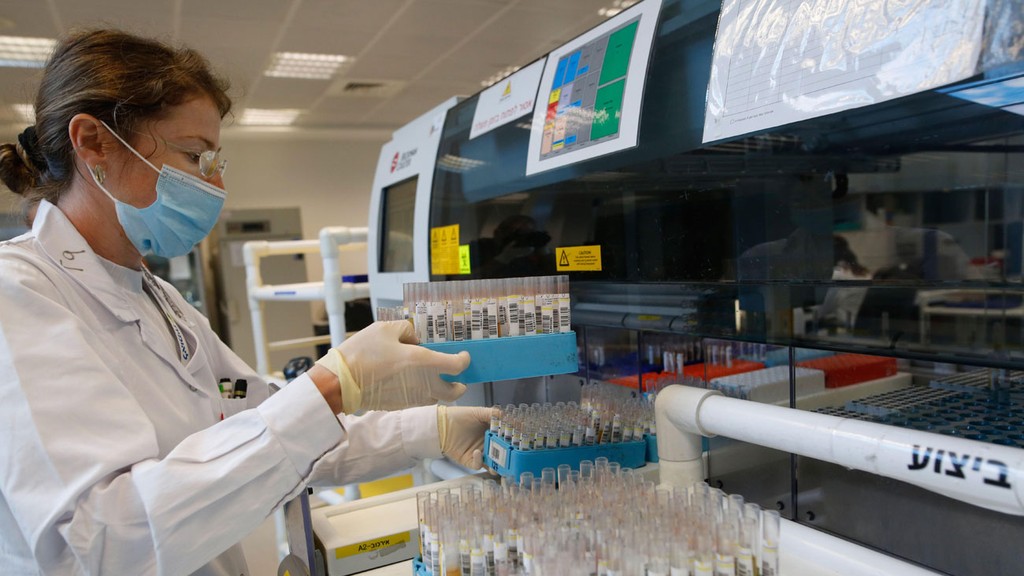A top health expert on Sunday warned that although Israel is seeing a slight drop in coronavirus infection rate, neither schools nor economy can fully reopen with 2,000 cases a day.
Professor Eran Segal, a computational biologist at the Weizmann Institute, told Ynet that despite a slight decrease in the number of new COVID-19 cases, the current daily toll of almost 2,000 is still too high in order to lift the remaining health restrictions.
4 View gallery


Temperature check at the entrance to The Carmel Market (the Shuk Hacarmel)
(Photo: Motti Kimchi )
"After seeing the second wave of coronavirus spread over the past few weeks, we are slowly beginning to notice the daily contagion rate drop slightly," he said. "The number of new cases each day has been steady at 1,900-2,000 patients for two weeks, and this may indicate a change."
Segal said the COVID-19's infection coefficient now stands at one, meaning each confirmed carrier infects at least one more person.
"If that remains the case, we will stay at 2,000 new cases per day," Segal said, "but that is not good enough and we must reduce the daily infection rate. Even if the health system is not in immediate danger of collapse, there is a continued strain on medical teams."
Segal added with 2,000 daily cases, government is unable to reopen more sectors of the economy or reopen schools on September 1. "This is not a number that can be managed," he said.
According to the professor, the public's internalization of the virus as a serious disease has contributed to the numbers remaining steady and not spiking further.
"The public is behaving more responsibly, and in July, more restrictions on the number of people allowed to congregate in one place were imposed," he said. "This affected the rate of infections, but if we do not reduce the number of new cases, we may not be able to reopen the schoolyear on September 1."
Segal said he was cautiously optimistic, but more must be done to reduce infections. He added the results of any additional steps taken to combat the virus would be seen only after a couple of weeks.
"We are now seeing the results of steps taken on July 5, when a limit of 50 people was imposed on public events, and on July 13, when more restrictions were imposed," Segal said.
"I don't think we have to impose anymore [restrictions] before we see a downward trend and if one continues, we may not have to impose any new restrictions," he said.
"It is not yet time for celebration and we have yet to see a real reduction in cases. We must reduce the number of infections before winter while we institute a mechanism to live with coronavirus."
Segal added that experts have been discussing these mechanisms for a while now and they include the epidemiological investigations of confirmed carriers, a larger capacity for testing and a better understanding of where the contagion is most aggressive.




